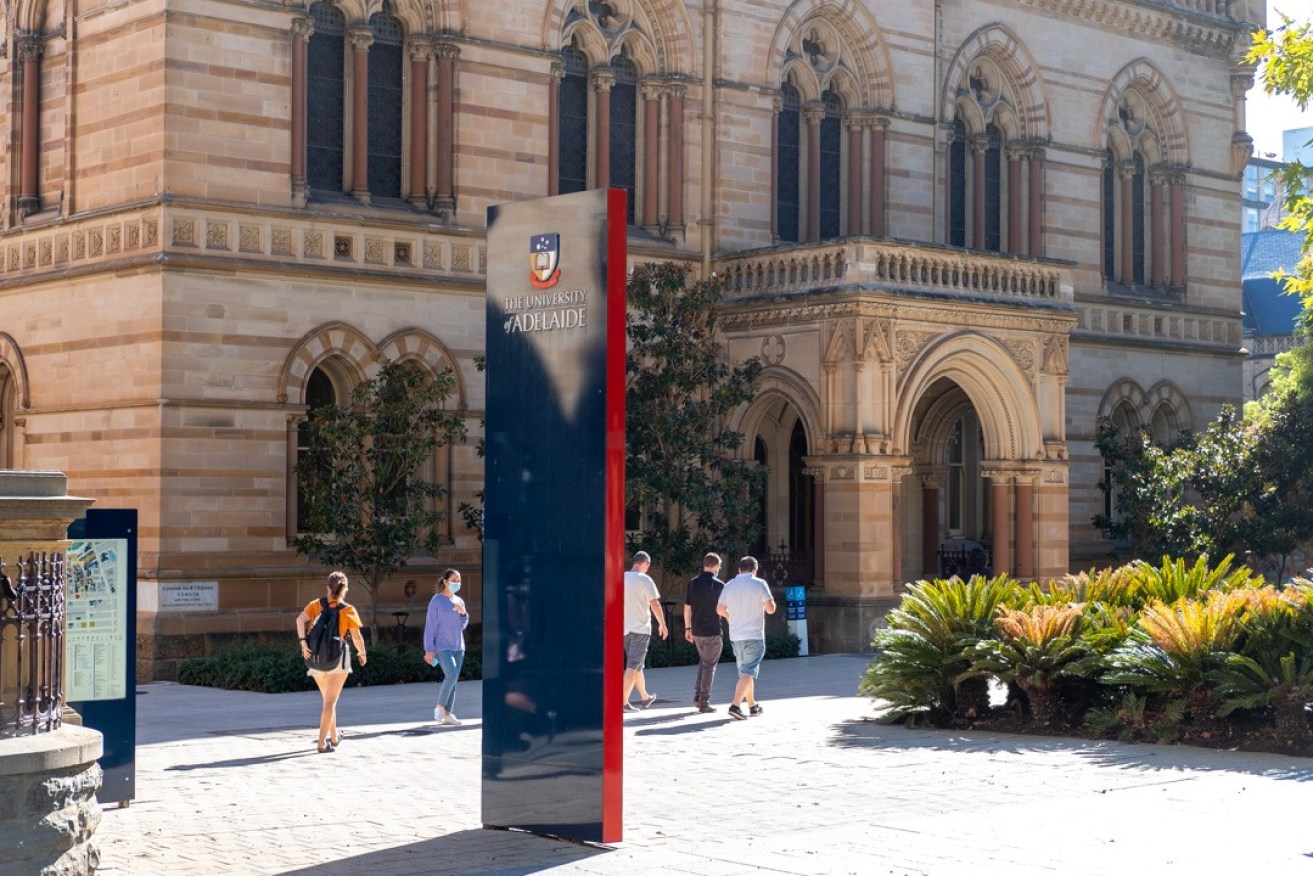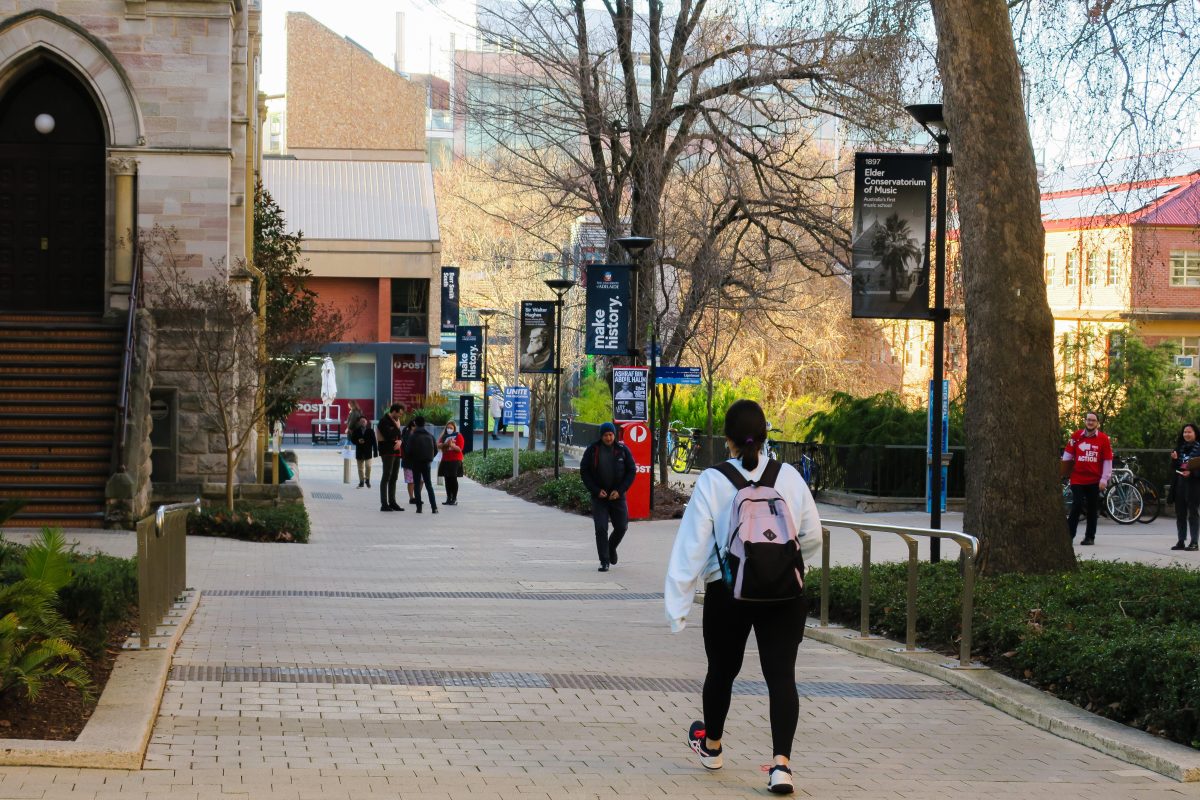‘Financial disadvantage’: Adelaide Uni calls for student debt rethink
The University of Adelaide has told a federal review into higher education that it is “time to re-evaluate the fairness” of Australia’s student loan system.


Photo: Tony Lewis/InDaily
In a recently published submission to the federal government’s Australian Universities Accord Panel, the University of Adelaide called into question the equity of Australia’s Higher Education Contribution Scheme/Higher Education Loan Program (HECS/HELP).
It also suggested an endowment system with industry and philanthropic funds could be a way to reduce “overreliance” on existing university revenue sources and “further build on the support offered to students through HECS”.
“The Accord is a time for Australia to re-evaluate what revenue it is prepared to increase to achieve a fairer and more cohesive society going forward,” the University of Adelaide submitted.
“This has already been proven to work in Nordic countries where Higher Education operates on the principle that everyone should have the same educational opportunities, regardless of their social or economic background.
“It is also the time to re- evaluate the fairness of the Higher Education Contribution Scheme/ Higher Education Loan Program (HECS/HELP) and acknowledge that under the current system going to university for some students could arguably put them at financial disadvantage.
“This is true for postgraduate as well as undergraduate study.”

An average Bachelor’s degree in Australia can cost between $15,000 and $33,000. Photo: Jason Katsaras/InDaily
Australia’s HECS/HELP system, introduced by Labor Education Minister John Dawkins in 1989, has come under scrutiny this year after university graduates were hit with a 7.1 per cent indexation hit to their HECS debt on June 1.
The increase, in line with inflation, added thousands of dollars to individual student loan balances and prompted warnings that some graduates will carry their HECS debt into retirement.
The Albanese Government has ruled out calls for a student debt freeze although has indicated it may consider changes to how student loans are indexed.
Federal Education Minister Jason Clare has also said access and affordability to higher education will be considered by the Australian Universities Accord Panel, a group of experts appointed to conduct a 12-month review of the sector.
The panel, which began its review in December, is due to submit an interim report this month and a final report by the end of the year.
The University of South Australia, Flinders University and the South Australian Government also made submissions to the Accord Panel although were less explicit about tackling spiralling HECS debt.
UniSA suggested that HECS repayment thresholds, which set how much debt must be repaid when graduates reach a certain income level (the current minimum threshold is $48,361), should “preferably” be revised upwards “and with interest costs minimised”.
It also called for change on HECS bands, which are the categories of study disciplines that determine how much a student must contribute towards their studies with the rest paid for by the federal government.
The bands set lower study costs for employment areas of government priority, with nursing, agriculture and education currently among the most subsidised courses while law, accounting, communications and society and culture among the least.
But UniSA said the bands should be based on the cost of delivering the courses.
“HECS bands, which should be few in number, should be based on a robust assessment of the full economic (actual) cost of delivery of the offering and the differentiated outcome for the student of benefits of the qualification,” UniSA submitted.
Flinders University suggested an independent commission should oversee funding for higher education to “[remove] the political agenda from the funding model”.
“The ongoing proposals and changes to funding the sector can be very disruptive and cause a great amount of internal work in universities,” the university submitted to the Accord Panel.
“Achieving more consistent funding models with appropriate levels of reporting would be beneficial to the sector.”
An average bachelor’s degree in Australia costs a student between $15,000 and $33,000, according to 2019 StudyAustralia figures.
Uni merger decision to be made ‘within weeks’

UniSA vice-chancellor David Lloyd with his University of Adelaide counterpart Peter Høj. Photo supplied.
Meanwhile, the governing councils of the University of Adelaide and UniSA are set to decide “within weeks” whether they will support a merger of the two institutions.
The Malinauskas Government has been pushing the two universities to amalgamate in a bid to create one of the biggest universities in Australia, although the proposal has been met with scepticism from staff.
The two universities reached an agreement in December to pursue a business case and feasibility study for a merger.
In their most recent joint statement on June 16, Adelaide vice-chancellor Peter Høj and UniSA vice-chancellor David Lloyd confirmed the universities’ governing councils had received “feasibility documentation” that will inform their decision.
“Our respective university Council members are working through a comprehensive set of feasibility documentation which outlines the benefits, opportunities and risks of combining the University of Adelaide and University of South Australia to create a new university,” the two vice-chancellors said.
“This has been informed by feedback received during this period from staff and students, together with the broader South Australian community.
“After reviewing this information independently, Council members will consider whether to support the creation of a new university. This will take place within weeks, and we will share the outcome at that time.
“No decision has been made at this point.”
The Malinauskas Government has previously said it will offer an unspecified financial contribution if the two universities decide to merge.
It’s unclear what the state government will do if the universities choose not to merge given Premier Peter Malinauskas’ vow earlier this year to “make” the amalgamation happen.
“It’s not a done deal, but we are going to make this happen,” Malinauskas said in March. “That’s my government’s policy.”




